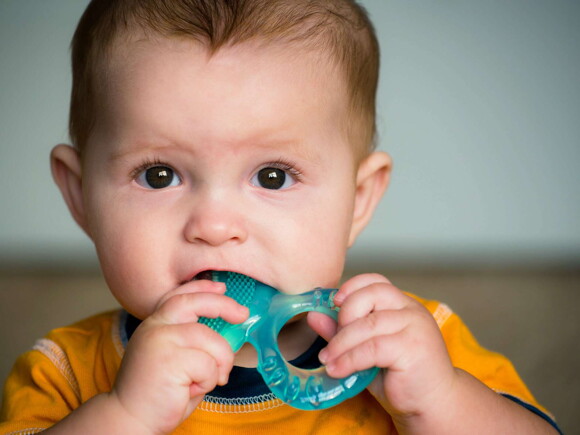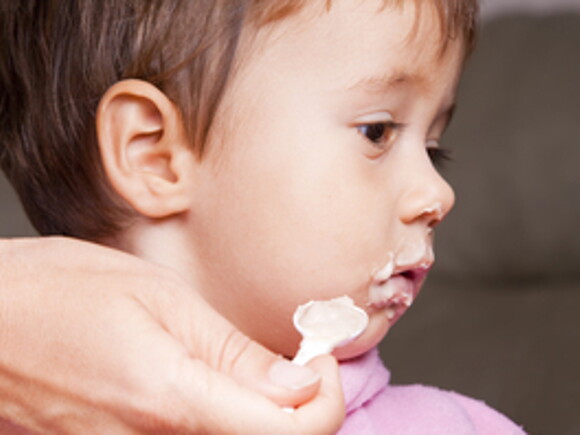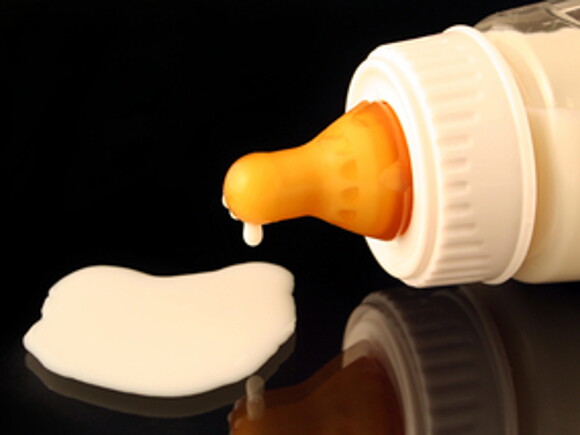IMPORTANT NOTICE: The World Health Organization (WHO) recommends exclusive breastfeeding for the first 6 months and continued breastfeeding for as long as possible. Growing up milks are formulated to meet nutrition needs of healthy young children older than 1 year and should not be fed to infants.
Vaccines are the best way to strengthen baby’s immunity and its capacity to fight many serious illnesses, for they contain disease-causing microorganisms or some parts of same and are often made from weakened or killed forms of the microbe.
While some vaccines protect from diphtheria, tetanus, pertussis, polio, influenza, measles, mumps, rubella and hepatitis B, some others protect from chickenpox, pneumococcosis, meningitis, rotavirus, papillary tumor and others.
According to experts and pediatricians around the world, it is quite important for a child to receive the complete vaccine schedule that is necessary for his immunity, as per the recommended doses convenient to his age, whilst taking into consideration the timing difference between one region and another or one country and another:
5 in 1 vaccine; protects against diphtheria, tetanus, pertussis, polio and influenza.
MMR vaccine; protects against measles, mumps and rubella.
Hepatitis B vaccine;
DTap vaccine; protects against diphtheria, tetanus and pertussis.
Chickenpox vaccine;
Pneumococcal vaccine; protects against infections caused by the Streptococcus pneumonia, including meningitis, pneumonia and ear infection.
Meningococcal vaccine; protects against diseases caused by the meningococcus bacteria, like septicemia and meningitis.
HPV vaccine; protects baby girls against tumors causing cervical cancer and genital warts.
Rotavirus vaccine; protects against the rotavirus which is one of the most common causes of severe diarrhea in infants and babies.
In addition to these necessary vaccines, some doctors recommend to give baby (above 6 month old) a yearly flu vaccine, especially if he’s prone to serious complications due to flu or he suffers from heart or lung diseases and other chronic conditions like asthma and diabetes, etc.
Generally speaking, vaccines are a safe and effective mean to stimulate baby’s immune system and help it fight any health risk. Nevertheless, the following symptoms can appear on a child because of vaccination:
- Irritation, breathing problems, severe swelling of the skin and mouth. In this case, it would be better to consult with the doctor before the next vaccination.
- Pain sensation, as well as swelling and redness at the injection site.
- High fever. In this case, it would be better to consult with the doctor and ask him about a safe medication to fight fever.
As mentioned above, vaccines are a safe and effective way to protect a baby from diseases. But the baby himself sees them as a source of worrisome, panic and discomfort, due to the pains they can cause. That’s why, we advise you to be beside your child in this step and try your best to soothe him and calm him down while he receives the vaccine shot and afterwards.
Hereby are few instructions to help you out:
- Ask your doctor about a topical anaesthetic you can put on your child’s vaccine site an hour before he gets the shot and it will relieve him.
- Keep calm and don’t let your child feel your stress. Try always to talk with deep and soft voice.
- Breastfeed your baby while he gets the shot or give him some sugary water some time before (if he’s not a breastfed baby).
- Use different methods to distract your baby’s attention over the vaccine, like soap bubbles and spinning wheels, as these types of distractions can stimulate him to take a deep breath and stay calm.
- Hold your baby’s hands or hug him while he gets the vaccine, so he can feel you and gets comfort by your presence.
- Talk to your child calmly and try to reassure him by using light words that do not remind him of pain, ache or sting.
- Try to explain to your child with age-appropriate words, about the importance of the vaccination and its role in strengthening his immunity and maintaining his health.
- If your child seems upset and discomforted after the injection, ask the doctor about painkillers you can give him and help him relax and sleep.
Now that you know all about the importance of vaccines and their role in maintaining your baby’s health, make sure he will get them on time and avoid infections and diseases which can badly affect his body and health.
Read More: Tips And Tricks To Give Medicine To Babies
Get full access to expert-backed nutrition support
My feed
Curated content based on your preferences
Feeding guidance
Learn about various feeding options and what each means for you and your baby
Tailored Practical Tools
Try our tailored practical tools to guide you through the parenting journey.
My First 1000 Days club
Customised notifications, reminders and newsletters
Still haven't found what you are looking for?
Try our new smart question engine. We'll always have something for you.





















